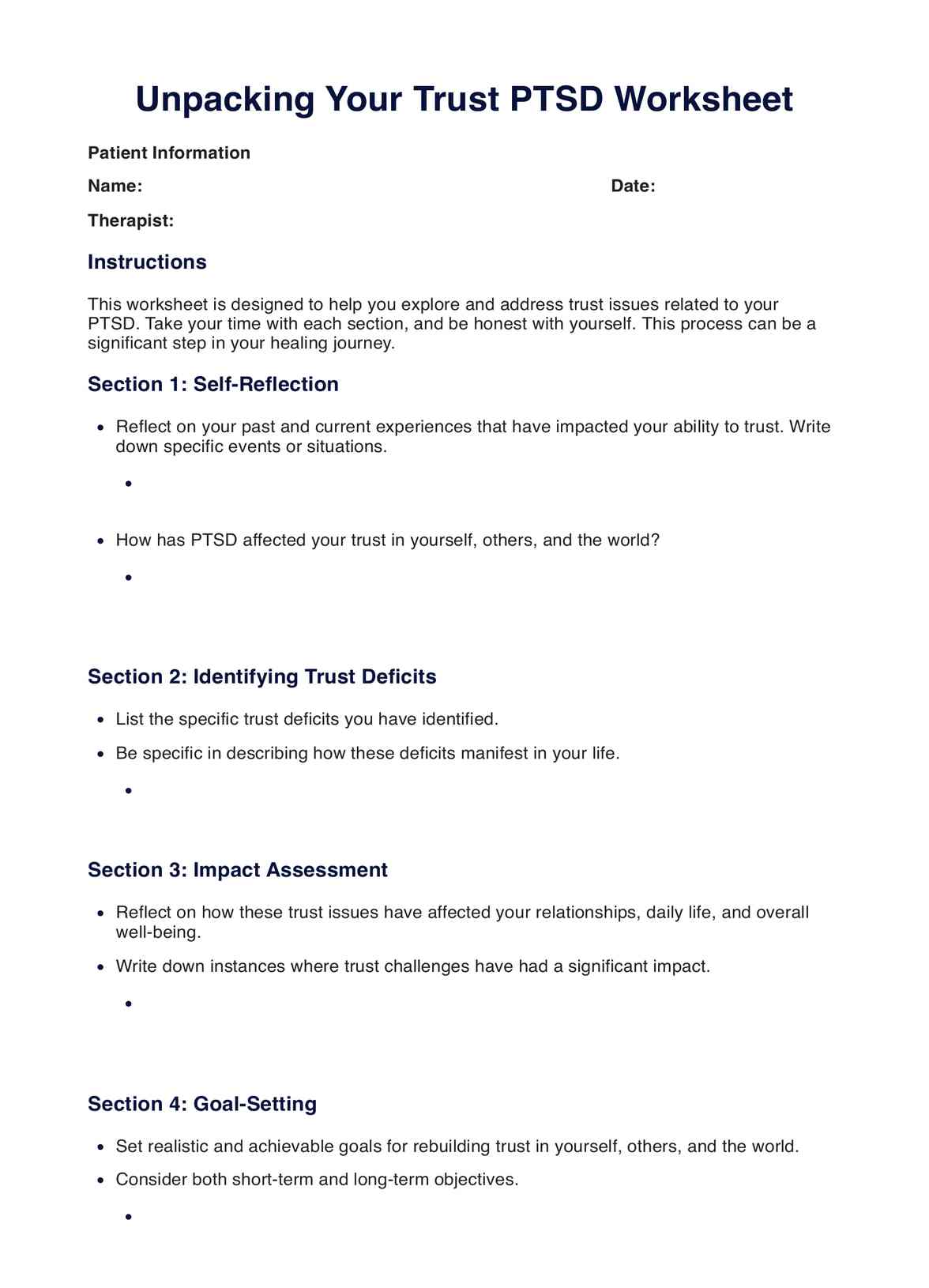Completion time varies, from a single session to several days or weeks, depending on individual pace.

Unpacking Your Trust PTSD Worksheet
Explore trust issues in PTSD with the Unpacking Your Trust PTSD Worksheet. Download this valuable tool for healing and self-discovery today.
Use Template
Unpacking Your Trust PTSD Worksheet Template
Commonly asked questions
It's available as a downloadable PDF online, often for free, on mental health websites or provided by therapists.
It's beneficial when trust issues related to PTSD must be addressed, whether at the start of therapy or during ongoing treatment.
EHR and practice management software
Get started for free
*No credit card required
Free
$0/usd
Unlimited clients
Telehealth
1GB of storage
Client portal text
Automated billing and online payments











